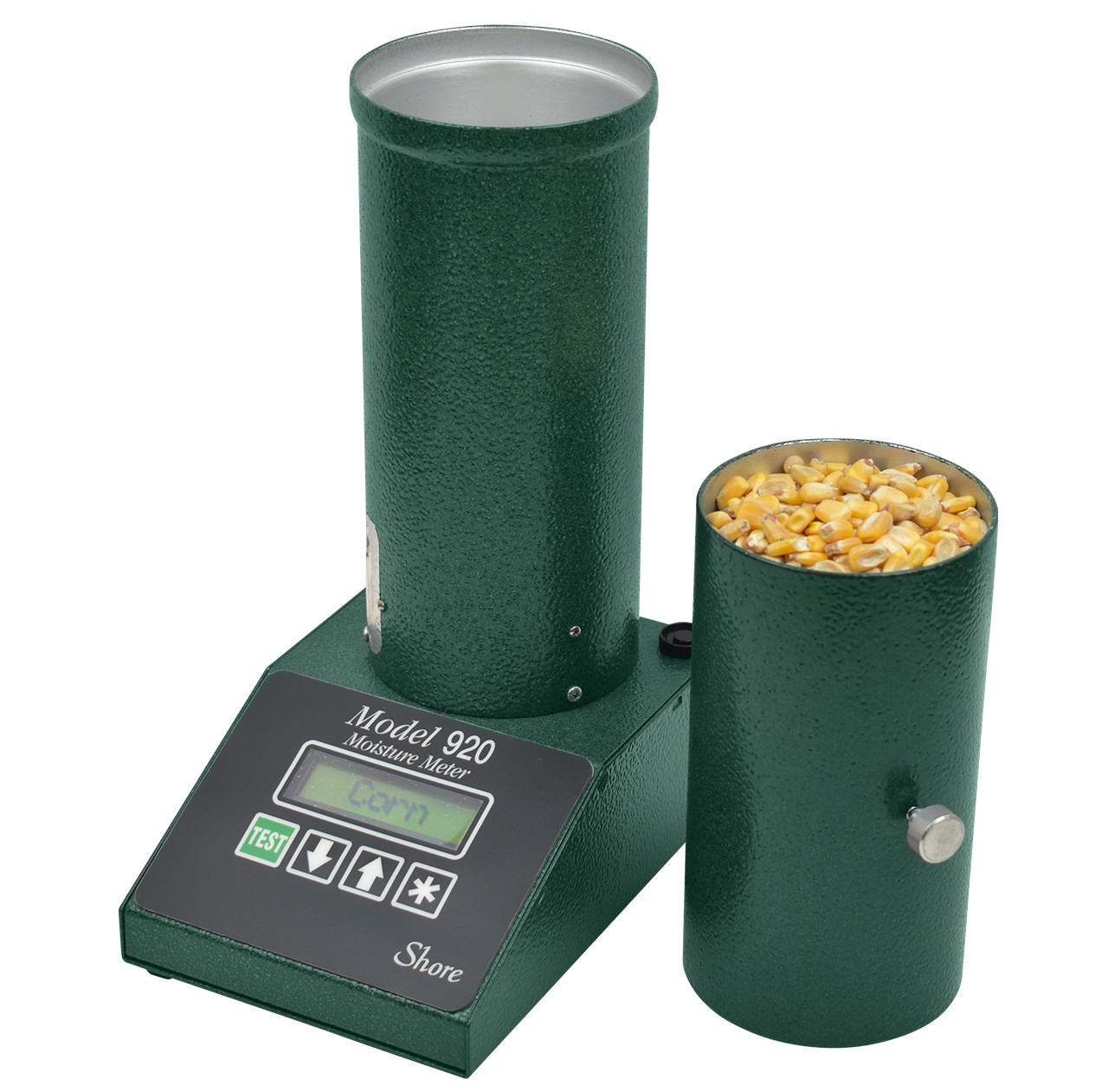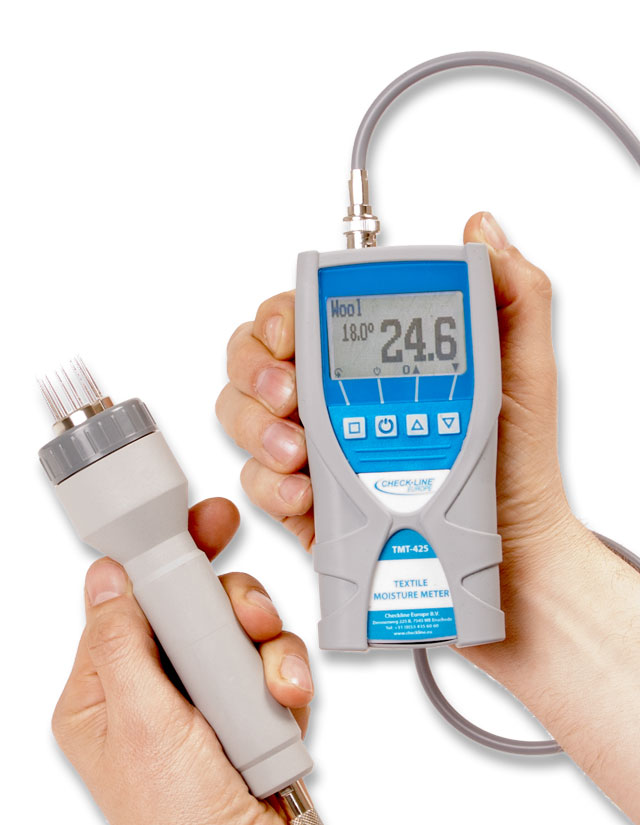Moisture Meter Acquiring Guide: What to Try to find in High-Quality Instruments
Wiki Article
The Ultimate Overview to Moisture Meters: A Comprehensive Introduction and Exactly How They Can Save You Money
In the world of structure maintenance, building, and different industries, the significance of accurately measuring dampness degrees can not be overemphasized. Dampness meters serve as important tools in spotting and keeping track of moisture web content in products, helping in protecting against pricey problems and ensuring the top quality of products. Comprehending the subtleties of different types of moisture meters, their applications, and the possible cost-saving benefits they supply can be a game-changer for experts and organizations alike. Discovering exactly how these tools can not only enhance procedures yet also add to monetary savings is a trip worth beginning on.Kinds of Moisture Meters
Numerous types of dampness meters are available for different applications in different industries. One common kind is the pin-type dampness meter, which measures the electric resistance in between two pins put right into a material. This type appropriates for timber, drywall, and other structure products. Pinless dampness meters, on the other hand, use electro-magnetic sensor plates to check a bigger location without causing damage to the product's surface. These meters are perfect for promptly examining wetness levels in large areas such as floors and wall surfaces.In addition, there are likewise specialty wetness meters made for specific products like dirt, grain, or hay. These meters give accurate dampness readings tailored to the unique residential properties of the product being examined. Infrared dampness meters gauge the thermal homes of a product to determine its dampness web content non-invasively, making them useful for applications where pin or pinless meters may not appropriate. Comprehending the various types of wetness meters readily available can help markets pick the most proper tool for their details moisture measurement needs.

Advantages of Utilizing Moisture Meters

Moreover, making use of wetness meters can cause increased energy performance. By determining locations with high dampness levels, such as leakages or poor insulation, modifications can be made to enhance power conservation and minimize utility prices. In agricultural setups, moisture meters play a critical function in maximizing plant returns by allowing farmers to keep an eye on dirt dampness levels and make educated irrigation choices. Overall, the benefits of making use of dampness meters span across numerous markets, providing economical services and advertising far better quality assurance practices.
Exactly How to Choose the Right Moisture Meter
Choosing the ideal wetness meter involves thinking about key elements such as product compatibility, measurement range, and calibration accuracy. When selecting a wetness meter, it's vital to guarantee that the meter appropriates for the certain material you will be testing. Various materials have varying electrical properties that can affect dampness analyses, Visit Website so selecting a meter designed for your material is vital for accurate results. In addition, think about the measurement series of the wetness meter. Make certain that the meter can spot wetness degrees within the range required for your applications. Calibration accuracy is an additional essential element to remember (Moisture Meter). Select a dampness meter with reliable calibration to guarantee accurate and consistent analyses. Some meters may call for regular calibration modifications, so understanding the calibration procedure is essential. By meticulously evaluating these factors, you can choose a wetness meter that meets your demands and provides exact moisture dimensions for your tasks.Correct Methods for Moisture Meter Usage
To make certain accurate wetness analyses and optimize the efficiency of a moisture meter, using correct methods is crucial. When utilizing a pin-type dampness meter, put the pins or probes right into the product being examined until they make complete call. Make certain the pins are vertical to the surface area to obtain one of the most exact analysis. For pinless moisture meters, hold the tool level versus the material and relocate gradually to cover the entire location for a typical analysis. It's critical to calibrate the dampness meter according to the material being tested to boost accuracy. Take numerous analyses across the surface and average them out for a more trustworthy outcome. In addition, guarantee that the product being evaluated is acclimated to the atmosphere to prevent manipulated readings. Regular maintenance of the moisture meter, such as cleansing the pins or sensor, is also important to make sure exact and consistent analyses. By adhering to these correct strategies, my explanation customers can rely on their wetness meter to offer credible dampness degrees, assisting in avoiding pricey damages or making sure high quality in various applications.
Expense Cost Savings Through Moisture Meter Applications
How can the calculated application of dampness meters lead to significant cost savings across different sectors? In the farming sector, dampness meters aid in identifying the ideal time for gathering plants, avoiding excess or over-drying wetness that can affect the last item's high quality.

Furthermore, in the food processing industry, wetness meters are important for keeping an eye on product quality and making certain compliance with safety and security regulations. By properly determining dampness material in food products, makers can protect against wasting, maintain quality, and lower waste, resulting in substantial cost savings. Generally, the critical application of dampness meters is a beneficial financial investment that can cause considerable expense decreases and enhanced effectiveness throughout numerous markets.
Conclusion
In final thought, dampness meters are important devices for detecting and measuring wetness degrees in different products. By utilizing the appropriate dampness meter and following appropriate methods, customers can successfully prevent expensive damages triggered by excess dampness.Dampness meters offer as crucial tools in discovering and keeping an eye on moisture content in products, assisting in avoiding pricey problems and ensuring the top quality of products. Infrared moisture meters gauge the thermal residential properties of a product Look At This to determine its dampness material non-invasively, making them beneficial for applications where pin or pinless meters might not be appropriate.Wetness meters provide vital advantages in properly keeping an eye on and assessing dampness levels in diverse materials and atmospheres. In farming setups, moisture meters play an important role in optimizing crop yields by making it possible for farmers to keep an eye on soil wetness degrees and make educated watering choices.In final thought, moisture meters are important tools for identifying and gauging moisture levels in numerous products.
Report this wiki page